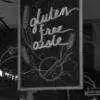-
Welcome to Celiac.com!
You have found your celiac tribe! Join us and ask questions in our forum, share your story, and connect with others.
-
Celiac.com Sponsor (A1):
Celiac.com Sponsor (A1-M):
-
Get Celiac.com Updates:Support Our Content
Lectin
-
Get Celiac.com Updates:Support Celiac.com:
-
Celiac.com Sponsor (A17):
Celiac.com Sponsor (A17):
Celiac.com Sponsors (A17-M):
-
Recent Activity
-
- disneyfamilyfive replied to disneyfamilyfive's topic in Celiac Disease Pre-Diagnosis, Testing & Symptoms2
Test result insight
Thank you for the article Scott. It was very informative. I didn’t realize I should have been eating a certain amount of gluten prior to the test. I only eat bread maybe 1x a week, don’t eat cereal. Pasta occasionally. I’m sure there is gluten in nearly everything, so I’ve had gluten but no idea how much, but definitely not slices of bread. Not sure ho... -
- Scott Adams replied to disneyfamilyfive's topic in Celiac Disease Pre-Diagnosis, Testing & Symptoms2
Test result insight
It sounds like you're navigating a lot right now, and it’s good that you’re being proactive about your health given your family history and symptoms. Based on the results you shared, the elevated IgA Gliadin and IgG Gliadin antibody levels could indicate an immune response to gluten, which may suggest celiac disease or gluten sensitivity. However, your tis... -
- disneyfamilyfive posted a topic in Celiac Disease Pre-Diagnosis, Testing & Symptoms2
Test result insight
Hello, I had celiac tests run a week ago and my doctor still has not viewed my results (I saw them on mychart 4 days ago), hoping to get a little insight. Background: my grandma had been diagnosed celiac and my dad was recently diagnosed with a form of celiac (rash but no gi symptoms). I have been battling anemia and have some gi symptoms similar to celiac... -
- Sicilygirl posted a topic in Celiac Disease Pre-Diagnosis, Testing & Symptoms0
fed up italian
I am looking for words of encouragement because I have just had enough with this celiac diagnosis. I recently got diagnosed in October this year and its been hell let me tell you. Fist of all my doctor did not want to do the test saying that I was not Celiac because I did not have blood in my stool. Really??? I thankfully insisted that he do the blood work... -
- trents replied to Jtestani's topic in Celiac Disease Pre-Diagnosis, Testing & Symptoms7
Help with results please. As I have a appt after the New Year.
JettaGirl, there are a number of serum antibody tests that can be ordered when diagnosing celiac disease. Unfortunately, most physicians will only order one or two. So, a negative on those one or two may or may not add up to seronegative celiac disease since had a "full celiac antibody panel" been ordered you may have thrown some positives. False negatives...
-





Recommended Posts
Archived
This topic is now archived and is closed to further replies.